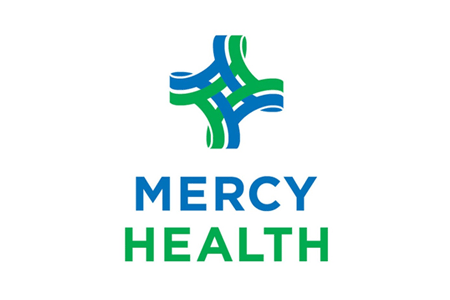Discover how vertical development opens the door to deeper understanding, greater clarity, and multiple right answers — especially necessary for senior leaders balancing complexity and competing priorities.
Talent Development
Home > Your Leadership Challenges > Talent Development
Your Organization Needs Experience-Driven Talent Development
Leaders aren’t born, they’re made. Design your talent development program accordingly.
You’ve likely heard of the 70-20-10 rule for learning & development, which says that 70% of learning comes from on-the-job experiences and challenges; 20% comes from other people; and 10% comes from courses and formal training. This classic talent development principle emerged from over 30 years of our research, and essentially says that the bulk of a leader’s learning actually happens at work.
That’s why, as important as formal coursework and training are, the most effective talent development programs put experience at the center of the process. Challenging assignments give individuals the opportunity to learn and refine their approach to be more successful in the future.
Experience-driven talent development is when experience — carefully designed and executed — becomes the core driver of learning in the organization. When working and learning are bound together, your talent development strategy will be focused on attracting, developing, motivating, retaining, and engaging employees. The key is to make experience-driven talent development intentional.
That’s where we come in. We can help ensure your talent development program takes a systemic approach to learning by working with HR leaders to create a leadership development architecture that can cascade both formal learning and on-the-job experiences throughout the entire organization.
Our Solutions for Your Talent Development Programs
Increase the capacity, reach, and impact of your in-house talent development initiatives with our proven leadership training content.
Choose the scale that’s right for your organization — from single-topic, one-day workshop kits or a scalable online foundational leadership skills course, all the way up to CCL Passport™, a comprehensive library of robust talent development content to support leaders at all levels.
Whatever you choose, our trusted, research-based content can be delivered by your internal staff, giving you the convenience and independence you want — with the support you need.
- Train-the-trainer and certification options available
We can help your talent development initiatives get the greatest possible return on investment.
With a combination of leadership analytics, talent diagnostics, 360 assessments, and other instruments, we can do a deep dive into your people, culture, business priorities, and engagement levels to help inform your investments in talent development and make sure you secure your organization’s future and retain your top leaders.
- Customization can be built off our highly personalized leadership programs to develop the competencies most needed for your organization’s unique context and culture
Executive leadership coaching is a key tool in the talent development arsenal. It creates self-awareness, helps drive lasting transformational change, and provides critical challenge and support.
Support talent development programs for your executives by partnering with us for a coaching engagement tailored to your succession planning and development needs. Leverage our selection of executive assessments to executive up-leveling experiences that can be interwoven into the executive coaching program.
- Available standalone or in our core leadership programs
- Access to our network of 600+ world-class executive coaches for highly personalized talent development
What Our Clients Are Saying
At CCL, we measure success by lives touched and impact made. That’s why the organizations we work with and the leaders we empower consistently tell us the same thing: their experience with us isn’t just a game-changer, it’s a life-changer. We’ve helped to align talent development with business strategy for organizations around the world.
But don’t just take our word for it — take theirs.
“We put leadership quite high on the agenda. We need people that have the capacity not only to organize a business, but also people who are able to create adherence to a strategy and culture, who create enthusiasm to empower people and who, at the same time, are available if people need help.”

“The idea of looking at talent across the system was still foreign. The instinct at the local level was to develop talent — and then protect it. It was clear that to implement succession planning in a meaningful way, we needed to change our vision. We had no way to create meaning around systemwide succession planning when our culture was in many ways locally focused.”

Let’s Talk About Your Organization’s Talent Development Program
Our experts are here to help. Get in touch us about your needs and how we can support your organization’s talent development approach and strategy.
Talent Development: Research & Resources
Help managers hold more effective talent conversations and give more constructive feedback, and you’ll greatly improve your talent development processes.
360 assessments can benefit more than individual leaders. By following these recommended best practices, they can be transformational for your entire organization.
Mentoring at work benefits everyone involved: the mentor, the mentee, and the organization. Learn how to structure a mentoring program that improves leader engagement, retention, and overall performance.
On-the-job experience is the number one way people learn and grow, accounting for more than 50% of learning. Here’s how talent leaders can maximize that learning to develop leaders.
Discussions of talent management frequently overlook the perspectives of high-potential talent. But these 3 things will increase the engagement and retention within your talent pool.
More About Talent Development
How to Make the Most of a Talent Development Program
Organizations around the world and in every sector are seeking to close the skills gap with employees. However, when learning from experience is embedded in the culture, the gap between doing the work and developing others shrinks. Learning isn’t added on, and coaching and mentoring aren’t initiatives — they’re just what everyone does. But an experience-driven talent development program like this requires a shift in your organization’s mindset and culture, along with changes in strategy, process, and roles.
Not sure where to start? Our talent development experts can help you pinpoint the critical leadership competencies needed to achieve success in your organization’s unique culture — and show you how to ensure your talent development initiatives unlock the power of experience to make it happen.


Get More From Your Talent Development Initiatives
Whether you’re looking to support top talent, increase self-awareness, strengthen fundamental leadership skills, or create a stronger organizational culture, we have a talent development solution that will help you get you the results you need. Our holistic approach means we look at your organization’s unique context, and then we help you unlock the power of learning from experience as you develop leaders at all levels.
Whether you’re looking for a customized, top-to-bottom solution to uplift and transform your entire organization, or targeted talent development programs for key leaders in the pipeline, we offer a variety of human-centered, research-based talent development solutions for every budget, available both virtually and in-person.
Frequently Asked Questions About Talent Development
At the Center of Creative Leadership, we focus on experience-driven talent development, which is when on-the-job experience is carefully designed and executed to become the core driver of learning and development in an organization. Talent development strategies can be aligned with the business strategy and organizational culture to create a leadership learning journey that can cascade both formal learning and on-the-job experiences throughout the entire organization.
Talent development is beneficial for organizations because it builds a pipeline of future leaders who are agile, resilient, and future-ready. Talent development initiatives also increase engagement and retention of top talent, increase self-awareness and effectiveness, strengthen fundamental leadership skills, and create a stronger organizational culture. Learn how managers can take responsibility for their role in talent development with this checklist for developing employees.
Our talent development program solutions assess your organization’s unique context and help you unlock the power of learning from experience. Additionally, we ensure that your program takes a systematic approach to learning by working with HR leaders to create a leadership architecture that trickles down from formal learning to on-site experiences throughout the organization.
If you want to develop a talent development program within your organization, but you’re not sure where to start, our experts can help. We’ll help you pinpoint the critical leadership competencies needed to achieve success, given your unique culture and challenges, and show you how to ensure your initiatives unlock the power of learning from experience. An experience-driven talent development program requires a shift in your organization’s mindset and culture — and we can help.
According to our widely-recognized 70-20-10 framework, while professional training and formal coursework are important, they only account for about 10% of overall learning, while typically about 70% comes from on-the-job experiences and challenges, and 20% comes from other people. That’s why the most effective organizational talent development programs put experience at the center of the development process, and leverage traditional training and coursework to hone skills as needed. Overall, experience-driven learning serves as the core of talent development.
Your organization’s talent development strategy can focus on a number of priorities, including supporting and retaining top talent, increasing self-awareness, strengthening fundamental leadership skills, improving collaboration, or creating a stronger organizational culture. The key is to align your talent development strategies with your business strategy and goals.
More questions? Our experts are here to help. Let’s have a conversation!
Related to Talent Development
Get Our Latest Updates
Subscribe to our email newsletters that highlight our latest research-based articles, products, programs, and more to help you strengthen your leadership skills.






